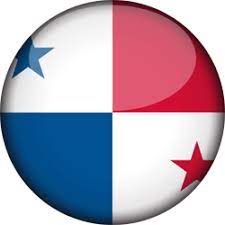U.S. – Panama Trade Promotion Agreement
Upon the adoption of the agreement, over 87 percent of U.S. industrial goods exports to Panama became duty-free including information technology equipment, agricultural and construction equipment, aircraft and parts, medical and scientific equipment, environmental products, pharmaceuticals, fertilizers, and agro-chemicals.
Other benefits of the TPA include:
- Tariff elimination on more than half of U.S. exports of agricultural commodities to Panama became duty-free on day one. Products include high-quality beef, frozen turkeys, sorghum, soybeans, soybean meal, crude soybean and corn oil, almost all fruit and fruit products, wheat, peanuts, whey, cotton, and many processed products.
- Stronger protection and enforcement of intellectual property rights in Panama.
- Increased access to Panama’s $20.6 billion services market, including in priority areas such as financial, telecommunications, computer, distribution, express delivery, energy, environmental, and professional services.
- Significant infrastructure opportunities in the ongoing $5.25 billion Panama Canal expansion project, as well as through the almost $10 billion in other significant infrastructure projects, including construction of a highway between Colon and Panama City, the expansion and modernization of the Tocumen International Airport, and a mega-port project for container ships on the Pacific side of the Panama Canal.
Rules of Origin
For goods that are not wholly obtained, you must meet the product’s rule of origin, usually through Tariff Shift or Regional Value Content. Learn more about how to Read and Apply FTA Rules of Origin. The rules of origin may be found in the final text of the FTA. Occasionally, a particular rule of origin may be revised. For the most updated version of the ROOs consult the Harmonized Tariff Schedule of the United States, General Notes — General Note 35.
In addition to the above rules of origin, there may be other ways to qualify your product:
- Accumulation may allow the producer to reduce the value of the non-originating materials used in the production of the good.
- De Minimis allows the exporter to disregard a very small percentage of non-originating materials the do no meet a tariff shift rule.
- Direct Shipment are goods which must be shipped directly from one FTA party to another FTA party.
- Fungible Goods and Materials refers to goods or materials (components) that are interchangeable for commercial purposes and whose properties are essentially identical.
- Indirect Materials are goods used in the production, testing or inspection of a good but not physically incorporated into the good.
Claiming/Documenting Origin
No specific certificate is required for the U.S. – Panama TPA. You may be requested by the importer or the Panama Customs Service to provide information to support a claim of preferential treatment. More information on what to include can be found in Free Trade Agreements Certificates of Origin.
Key Links/Resources
- USTR U.S. – Panama FTA
- USDA Overview
- Textiles Overview
- CBP Side-by-Side Comparison of FTAs
- U.S. Commercial Service Panama
- FTA Tariff Tool
- FTA Help Center
